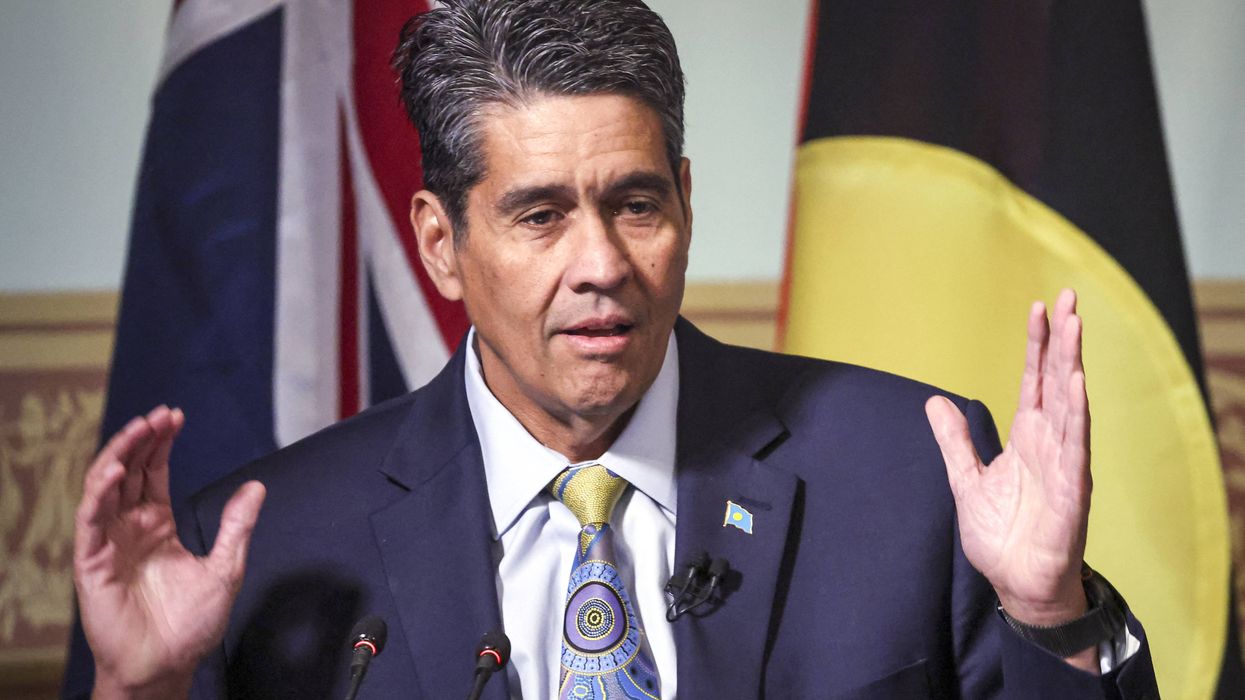February, 19 2019, 11:00pm EDT

For Immediate Release
Contact:
Southern Environmental Law Center – Mike Mather, 434.333.9464, mmather@selcva.org
South Carolina Coastal Conservation League – Caitie Forde-Smith, 252.714.4790, caitiefs@scccl.org
Oceana – Dustin Cranor, 954.348.1314, dcranor@oceana.org
Natural Resources Defense Council – Anne Hawke, 646.823.4518, ahawke@nrdc.org
Earthjustice – Maggie Caldwell, 415.217.2084, mcaldwell@earthjustice.org
Center for Biological Diversity – Kristen Monsell, 914.806.3467, kmonsell@biologicaldiversity.org
Defenders of Wildlife – Gwen Dobbs, 202-329.9295, gdobbs@defenders.org
Groups Seek Court Order Blocking Atlantic Seismic Blasting
Filing: Government downplayed considerable harm blasting would cause
CHARLESTON, SC
A group of conservation organizations today asked a federal judge to block the start of harmful seismic airgun blasting in the Atlantic Ocean, a precursor to offshore drilling, until the case can be fully heard in court.
The motion for a preliminary injunction filed in federal court in Charleston contends, among other things, the Trump administration's approval for five companies to harm ocean animals with seismic airgun blasting violates three federal laws -- the Marine Mammal Protection Act, the Endangered Species Act, and the National Environmental Policy Act.
Separately, 16 South Carolina coastal communities and the South Carolina Small Business Chamber of Commerce also filed a lawsuit to prevent seismic blasting. That lawsuit has been merged with the one from the conservation groups. Ten East Coast attorneys general, including South Carolina's Alan Wilson, have intervened in the combined lawsuits.
However, without today's request from the conservation organizations, the blasting could begin before this case is fully resolved.
The filing asserts that:
- Dolphins, whales and other animals could endure five million blasts as these companies seek offshore oil and gas deposits.
- The blasts will happen approximately every 10 seconds for weeks or months at a time.
- Seismic airguns create one of the loudest sources of noise in the oceans.
- The government failed to consider the combined effects of overlapping and simultaneous surveys, which are greater than the effects of individual seismic-blasting boats.
- The government erroneously determined that only a "small number" of whales and dolphins would be harmed.
- Should it go forward, this blasting will irreparably harm marine species, from tiny zooplankton--the foundation of ocean life--to the great whales.
The National Marine Fisheries Service has authorized one company to harm more than 50,000 dolphins and another company to harm 20,000 more.
The filing also claims the blasts could irreparably harm the small population of the critically endangered North Atlantic right whale, a species on the verge of extinction. There are only about 400 right whales remaining in the Atlantic. Further, the filing shows that blasting ships would "concentrate their fire" on the world's densest population of acoustically sensitive beaked whales off North Carolina's Outer Banks.
The case number is 18-3326 in United States District Court for the District of South Carolina. It is assigned to Judge Richard Gergel.
The South Carolina Coastal Conservation League, Center for Biological Diversity, Defenders of Wildlife, Natural Resources Defense Council, North Carolina Coastal Federation, Oceana, One Hundred Miles, Sierra Club and the Surfrider Foundation are bringing the case. The Southern Environmental Law Center is representing South Carolina Coastal Conservation League, Defenders of Wildlife, North Carolina Coastal Federation, and One Hundred Miles. Earthjustice is representing Sierra Club and the Surfrider Foundation.
# # #
Quotes from participating organizations:
"Bombarding endangered whales with deafening blasts to search for dirty oil is indefensible. The court should prevent the devastating harm seismic airgun blasting would do to marine life," said Kristen Monsell, ocean legal director with the Center for Biological Diversity. "There's strong bipartisan opposition to Trump's proposal to allow offshore drilling in the Atlantic. We need to leave that oil in the ground and call off this sonic attack on North Atlantic right whales and other animals."
"The harm seismic blasting will inflict on dolphins and whales can't be reversed, that's why it is so important to have a full and open debate in court before allowing boats in the water," said Laura Cantral, executive director of the Coastal Conservation League. "We have a chance to stop harm before it begins and to prevent the precursor to offshore drilling, something that no coastal communities in South Carolina want."
"We are fighting to keep seismic ships and an estimated 5 million sonic blasts out of our oceans," said Jane Davenport, senior attorney at Defenders of Wildlife. "Seismic blasting poses unacceptable risks to vulnerable marine wildlife at every level, from plankton at the base of the food web to the critically imperiled North Atlantic right whale at the top. The Trump administration's decision to allow seismic blasting to proceed violates our nation's bedrock wildlife protections laws and flouts common sense. We will not stop fighting this illegal move by the Trump administration to pander to the fossil fuel industry at the expense of our marine wildlife heritage."
"Allowing oil and gas companies to proceed with the activity we are challenging while the case is heard is like letting a city build a highway through a community while that community is trying to stop the construction in court. Once the damage is done, it's done. The harm this activity will cause to thousands of whales, dolphins, and other marine wildlife has similarly irreversible consequences," said Steve Mashuda, Earthjustice attorney representing Sierra Club and Surfrider in the litigation.
"Seismic blasting will cause harm the moment it begins. We're asking the court to prevent any seismic activity from going forward while it considers our claims that the Trump administration is violating multiple federal environmental laws," said Michael Jasny, director of the Marine Mammal Protection Project for the Natural Resources Defense Council.
"The North Carolina Coastal Federation is concerned that the continuous and cumulative airgun blasting associated with seismic testing surveys will negatively impact marine mammals, commercially and recreationally important fisheries, and dramatically decrease the abundance of zooplankton, which is a key organism in the marine food web and a main source of food for fish and baleen whales," said Michael Flynn, the group's Coastal Advocate. "Seismic testing surveys are the precursor to offshore oil and gas exploration and drilling -- an activity that the federation strongly opposes."
"This important issue deserves a fair day in court. We can't let this dangerous activity cause a species to go extinct just so the oil industry can open our oceans to offshore drilling. Up and down the Atlantic coast, businesses, communities and bipartisan elected officials are overwhelmingly opposed to seismic airgun blasting. Every East Coast governor and over 90 percent of coastal municipalities in the blast zone are opposed to opening our coast to drilling - this is states versus President Trump," said Diane Hoskins, campaign director at Oceana. "We are going to do everything in our power to stop this unlawful, irreparable and needless harm."
"Georgia's coast, and the Southeastern United States, is home to rich, diverse, and valuable marine life upon which our local economies depend. One Hundred Miles will do whatever it takes to protect these assets from the damage caused by seismic blasting," said Alice Keyes of One Hundred Miles.
"There are so few right whales left that risking harm or death to a single calf or a single female would be a devastating blow to the population," said Catherine Wannamaker, an attorney at the Southern Environmental Law Center in Charleston. "This season, we know seven calves were born, which is a remarkable turnaround from last year when none were. These new calves are a small but critical step for this species, and we shouldn't do anything to jeopardize that."
"We will not back down in our efforts to protect America's public waters from expanded drilling and the dangerous seismic blasting that precedes it," said Sierra Club Lands Protections Program Director Athan Manuel. "To allow this destructive activity to move forward before these challenges have been settled would be inexcusable."
"Seismic testing can be harmful and even fatal to the millions of dolphins, whales and other marine animals in the Atlantic," said Surfrider's Legal Director, Angela Howe. "We will fight to prevent this damaging first step to offshore drilling at every turn, and this preliminary injunction motion is intended to stop the destructive activity before it starts. Together, we will continue to stand up to protect our marine environment and our ocean ecosystems for this and future generations."
Oceana is the largest international ocean conservation and advocacy organization. Oceana works to protect and restore the world's oceans through targeted policy campaigns.
LATEST NEWS
'Unhinged' Trump Wishes 'Merry Christmas to All, Including the Radical Left Scum'
"Nothing more Christian than to be a hateful wretched fuck on Jesus’ birthday," quipped one critic.
Dec 25, 2025
In a message called typically on-brand by observers, US President Donald Trump wished "Merry Christmas to all"—including his political opponents, whom he described in decidedly unchristlike language.
"Merry Christmas to all, including the Radical Left Scum that is doing everything possible to destroy our Country, but are failing badly," Trump said Christmas Eve on his Truth Social network.
"We no longer have Open Borders, Men in Women’s Sports, Transgender for Everyone, or Weak Law Enforcement," the president added. "What we do have is a Record Stock Market and 401K’s, Lowest Crime numbers in decades, No Inflation, and yesterday, a 4.3 GDP, two points better than expected. Tariffs have given us Trillions of Dollars in Growth and Prosperity, and the strongest National Security we have ever had. We are respected again, perhaps like never before. God Bless America!!!"
While nothing new—Trump has used past Christmas messages to tell people he doesn't like to "go to hell" and "rot in hell"—observers, including some MAGA supporters, were still left shaking their heads.
"Radical Left Scum" 😂🤣😂🤣😂🤣Christmas greetings from a liar, traitor, pedophile, and overall shitstain upon society.
[image or embed]
— Bill Madden (@maddenifico.bsky.social) December 24, 2025 at 9:00 PM
"Nothing more Christian than to be a hateful wretched fuck on Jesus’ birthday!" liberal political commentator Dean Withers said on X.
Another popular X account posted: "A sitting president of the United States using Christmas Day to spew venom at fellow Americans he calls 'Radical Left Scum' isn’t just unpresidential—it’s unhinged, un-Christian, and utterly beneath the office."
"This is the behavior of a bitter, small man who can’t even pretend to unify for one holy day," she added. "Shameful. Disgraceful. Pathetic."
Keep ReadingShow Less
Palau Signs Controversial $7.5 Million Deal to Take 75 Trump Deportees
"What if we spent the $100,000 per person in America setting them up with housing assistance, healthcare, education, etc?" asked one critic.
Dec 25, 2025
Palau said Wednesday that it has agreed to take in up to 75 people deported from the United States during President Donald Trump's purge of unauthorized immigrants in exchange for millions of dollars in financial assistance—a move that has sparked considerable opposition among the Pacific archipelago nation's roughly 18,000 inhabitants.
The office of Palauan President Surangel Whipps Jr. announced a memorandum of understanding with the United States under which the country will receive $7.5 million in assistance in exchange for taking in 75 third-country deportees who cannot be repatriated to their countries of origin.
Earlier this week, US State Department Principal Deputy Spokesperson Tommy Pigott said the people who will be sent to Palau have “no known criminal histories," as is the case with the vast majority of unauthorized immigrants in the United States, who have committed no crime other than the mere misdemeanor of entering the country illegally.
However, Palauans have voiced concerns over US Secretary of State Marco Rubio's remarks during a Cabinet meeting earlier this year in which he said that, “We want to send some of the most despicable human beings—perverts, pedophiles, and child rapists—to your countries as a favor to us."
Whipps said Wednesday that the relocation plan involves “people seeking safety and stability."
“These are not criminals,” the president said during earlier debate on the proposal. “Their only offense was entering the United States illegally and working without proper permits.”
However, Palau's Congress and its influential Council of Chiefs have twice rejected the transfers.
Piggot's statement "highlighted US commitments to partner with Palau on strengthening the country’s healthcare infrastructure, increasing Palau’s capacity to combat transnational crime and drug trafficking, and bolstering Palau’s civil service pension system."
Palau, which was administered by the US from 1947-94 and is now associated with the United States under the 1994 Compact of Free Association, which guaranteed the country nearly $900 million economic aid over 20 years in exchange for exclusive US military access.
The country's foreign policy often tracks closely to that of the US. For example, Palau is sometimes among the handful of usually similarly small nations that vote along with the United States and Israel against United Nations resolutions condemning Israeli crimes or affirming Palestinian rights.
Other developing nations including Eswatini, Rwanda, South Sudan, and Uganda have also agreed to take in US deportees or are considering doing so.
Reactions to the US-Palau agreement drew criticism on social media, where one X user called the deal a "bribe" and another popular Bluesky account asked, "What if we spent the $100,000 per person in America setting them up with housing assistance, healthcare, education, etc?"
Keep ReadingShow Less
Trump 'Choosing From the War Crimes Menu' With 'Quarantine' on Venezuela Oil Exports
"Economic strangulation is warfare and civilians always pay the price," lamented CodePink.
Dec 25, 2025
President Donald Trump has ordered US military forces to further escalate their aggression against Venezuela by enforcing a "quarantine" on the South American nation's oil—by far its main export—in what one peace group called an attempted act of "economic strangulation."
"While military options still exist, the focus is to first use economic pressure by enforcing sanctions to reach the outcome the White House is looking [for]," a US official, who spoke on condition of anonymity, told Reuters.
The move follows the deployment of an armada of US warships and thousands of troops to the region, threats to invade Venezuela, oil tanker seizures off the Venezuelan coast, Trump's authorization of covert CIA action against the socialist government of Venezuelan President Nicolás Maduro, and airstrikes against boats allegedly running drugs in the Caribbean Sea and Pacific Ocean that have killed more than 100 people in what critics say are murders and likely war crimes.
This, atop existing economic sanctions that experts say have killed tens of thousands of Venezuelans since they were first imposed during the first Trump administration in 2017.
"The efforts so far have put tremendous pressure on Maduro, and the belief is that by late January, Venezuela will be facing an economic calamity unless it agrees to make significant concessions to the US," the official told Reuters.
The official's use of the word "quarantine" evoked the 1962 Cuban Missile Crisis, an existential standoff that occurred after the John F. Kennedy administration imposed a naval blockade around Cuba to prevent Soviet nuclear missiles from being deployed on the island, even as the US was surrounding the Soviet Union with nuclear weapons.
"This is an illegal blockade," the women-led peace group CodePink said in response to the Reuters report. "Calling it a 'quarantine' doesn’t change the reality. The US regime is using hunger as a weapon of war to force regime change in Venezuela. Economic strangulation is warfare and civilians always pay the price. The US is a regime of terror."
Critics have also compared Trump's aggression to the George W. Bush administration's buildup to the invasion and occupation of Iraq, initially referred to as Operation Iraqi Liberation (OIL). But unlike Bush, Trump—who derided Bush for not seizing Iraq's petroleum resources as spoils of war—has openly acknowledged his desire to take Venezuela's oil.
"Maybe we will sell it, maybe we will keep it,” he Trump said on Monday. “Maybe we’ll use it in the strategic reserves. We’re keeping the ships also.”
On Wednesday, a panel of United Nations experts said that the US blockade and boat strikes constitute "illegal armed aggression" against Venezuela.
Multiple efforts by US lawmakers—mostly Democrats, but also a handful of anti-war Republicans—to pass a war powers resolution blocking the Trump administration from bombing boats or attacking Venezuela have failed.
The blockade and vessel seizures have paralyzed Venezuela's oil exports. Ports are clogged with full tankers whose operators are fearful of entering international waters. Venezuela-bound tankers have also turned back for fear of seizure. Although Venezuelan military vessels are accompanying tankers, the escorts stop once the ships reach international waters.
According to the New York Times, Venezuela is considering putting armed troops aboard tankers bound for China, which, along with Russia, has pledged its support—but little more—for Caracas.
Keep ReadingShow Less
Most Popular


